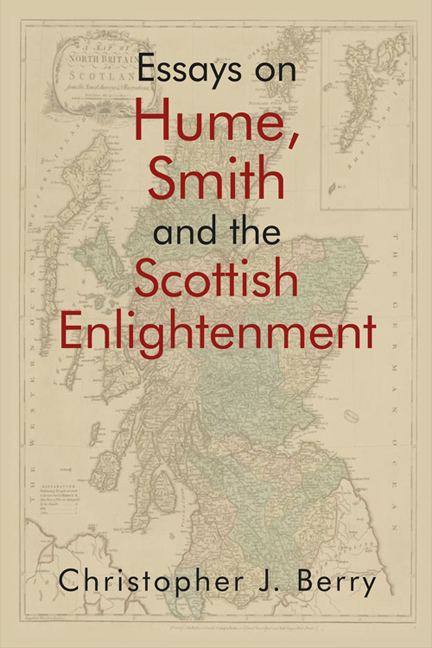21 - Adam Smith on Liberty ‘in our present sense of the word’
Published online by Cambridge University Press: 06 May 2021
Summary
[A] The important privileges above mentioned, that they might give away their own daughters in marriage, that their children should succeed to them, and that they might dispose of their own effects by will, were generally bestowed upon the burghers of the town to whom it was given. Whether such privileges had before been usually granted along with the freedom of trade to particular burghers, as individuals, I know not. I reckon it not improbable that they were, though I cannot produce any direct evidence of it. But however this may have been, the principal attributes of villanage and slavery being thus taken away from them, they now, at least, became really free in our present sense of the word Freedom.
[B] Nor was this all. They were generally at the same time erected into a commonalty or corporation, with the privilege of having magistrates and a town council of their own, of making by-laws for their own government, of building walls for their own defence, and of reducing all their inhabitants under a sort of military discipline by obliging them to watch and ward, that is, as anciently understood, to guard and defend those walls against all attacks and surprises by night as well as by day. In England they were generally exempted from suit to the hundred and county courts; and all such pleas as should arise among them, the pleas of the crown excepted, were left to the decision of their own magistrates. In other countries much greater and more extensive jurisdictions were frequently granted to them.
[C] It might, probably, be necessary to grant to such towns as were admitted to farm their own revenues some sort of compulsive jurisdiction to oblige their own citizens to make payment. In those disorderly times it might have been extremely inconvenient to have left them to seek this sort of justice from any other tribunal. But it must seem extraordinary that the sovereigns of all the different countries of Europe should have exchanged in this manner for a rent certain, never more to be augmented, that branch of the revenue which was, perhaps, of all others the most likely to be improved by the natural course of things, without either expence or attention of their own: and that they should, besides, have in this manner voluntarily erected a sort of independent republic in the heart of their own dominions.
- Type
- Chapter
- Information
- Essays on Hume, Smith and the Scottish Enlightenment , pp. 385 - 402Publisher: Edinburgh University PressPrint publication year: 2018



